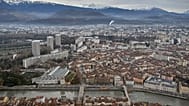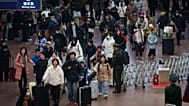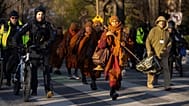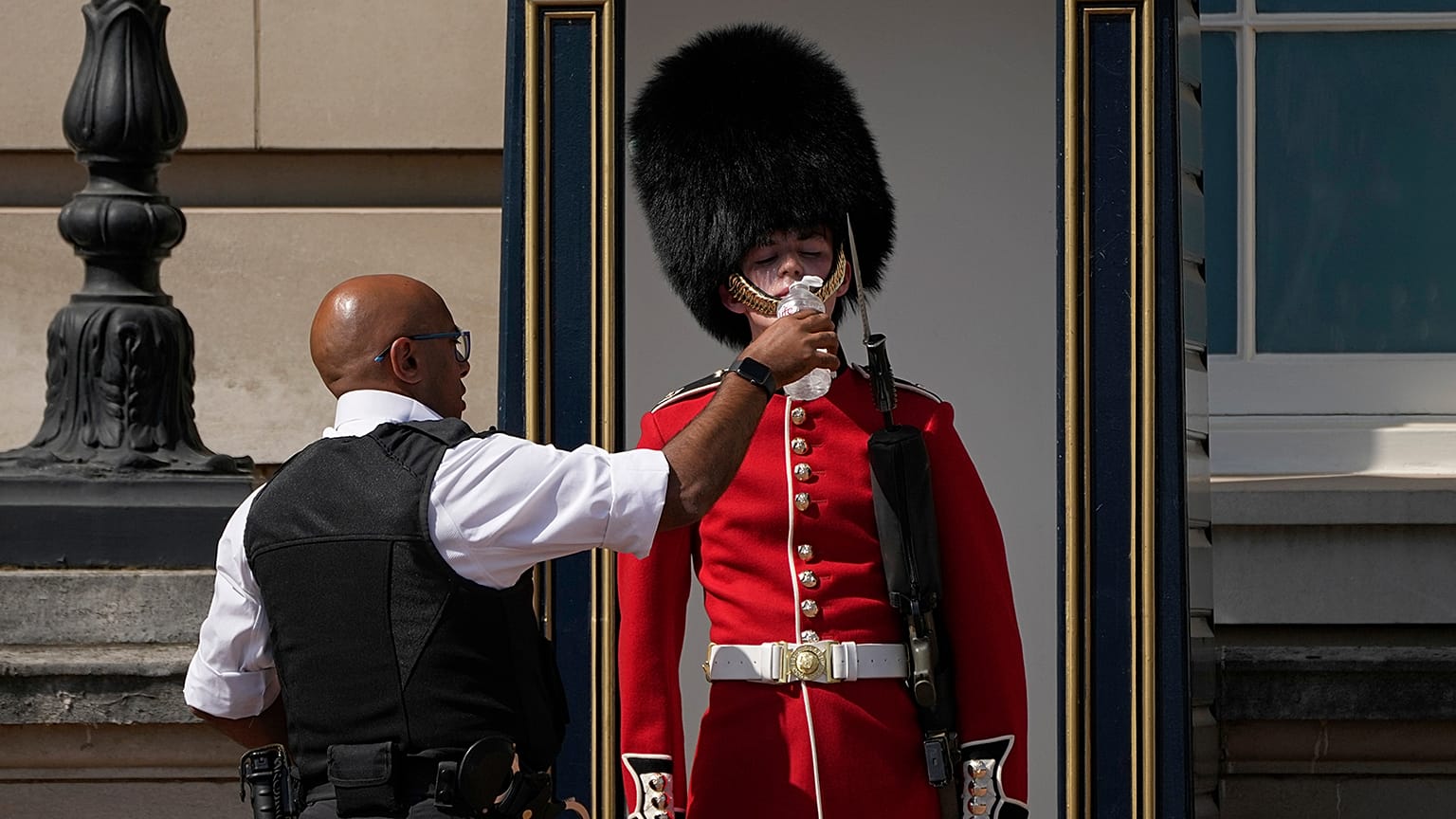The low rainfall in both countries has been coupled with a summer of unprecedentedly high temperatures, which topped 40 degrees Celsius in England in July for the first time ever.
France and southern and eastern England experienced the driest July on record, making already insufficient water resources even more scarce, forcing restrictions on both sides of the Channel.
In France, where an intense drought has hammered farmers and prompted widespread limits on freshwater use, there were just 9.7 millimetres of rain last month, Meteo France said.
This was 84% down on the average seen in July since 1991, making it the second driest month since March 1961, the agency added.
Meanwhile, swathes of England's southern and eastern parts recorded the lowest rainfall in July on record, the UK's Met Office, which has been compiling records since 1836, stated on Monday.
The whole of England recorded an average of 23.1mm of rain -- the lowest figure for the month since 1935 and the seventh lowest July total on record.
The low rainfall in both countries has been coupled with a summer of unprecedentedly high temperatures, which topped 40 degrees Celsius in England in July for the first time ever.
Climate scientists overwhelmingly agree that carbon emissions from humans burning fossil fuels are heating the planet, raising the risk and severity of droughts, heatwaves, and other extreme weather events.
Analysis by an international team of researchers released last Friday found climate change caused by human activity made the recent record-shattering UK heatwave at least 10 times more likely to occur.
Water companies struggle with demand, impose restrictions
Water companies on both sides of the Channel are struggling to respond to the parched conditions.
Nearly all of France's 96 mainland regions have imposed water use restrictions, also a record.
The country is bracing for its third heatwave this summer, beginning in the southeast on Monday before heading north toward Paris.
Farmers nationwide are reporting difficulties in feeding livestock because of parched grasslands, while irrigation has been banned in large areas of the northwest and southeast due to freshwater shortages.
On river Rhine, which runs along the France-Germany border, commercial boats have to run at one-third of their carrying capacity in order to avoid hitting the bottom because the water level is so low.
Environment Minister Christophe Bechu said July's rainfall represented "just 12% of what's needed".
"We have a heatwave that increases the need (for water) and a drought that is limiting what is available, pushing us into this vicious cycle," Bechu told BFM television during a visit to the hard-hit Isere department in the southeast.
In England, one water provider has so far announced restrictions.
Southern Water, which is responsible for supplies over a great portion of central southern England, will impose limits on its almost one million customers from later this week.
But the so-called hosepipe ban could soon be replicated by other providers, following a warning by the UK government's Environment Agency that people needed to use water "wisely".
Most of England has moved into "prolonged dry weather" status, the agency said last week.
This means it is now taking precautionary actions to mitigate impacts "as hydrological conditions deteriorate".















